After the Wall: Inside the fallen world of East German soccer
Saturday marks the 35th anniversary of the fall of the Berlin Wall. theScore explores how the historic event impacted soccer in eastern Germany and why so few of the region's storied clubs have been successful.
Uwe Rosler was "frightened to death."
He didn't recognize the room where he was being interrogated. The East German government's secret police switched cars on the journey - they wanted to ensure no one would find it.
The Stasi revealed their plan after questioning the 18-year-old forward. They wanted him to be a spy or, more specifically, a "Reisekader": somebody authorized to travel abroad, especially to non-socialist nations, to gather information for the German Democratic Republic (GDR). They wanted details on fellow players, no matter how mundane.
"I knew the consequences of doing it. I knew the consequences of not doing it. They threatened me. They said, 'When you're not working with us, we control you. We control your family, we control your career,'" Rosler told theScore.
In totalitarian cultures, putting the interests of society before family, friends, and your own personal welfare is strongly encouraged and even expected. The GDR was no different. Around one-third of squads in East Germany's first division, the Oberliga, were unofficial Stasi informants.
In 1987, Rosler was trying to break into the first team at Lokomotive Leipzig, which had then suffered a narrow loss to Ajax in the UEFA Cup Winners' Cup final. He could potentially access a bounty of information for the Stasi.
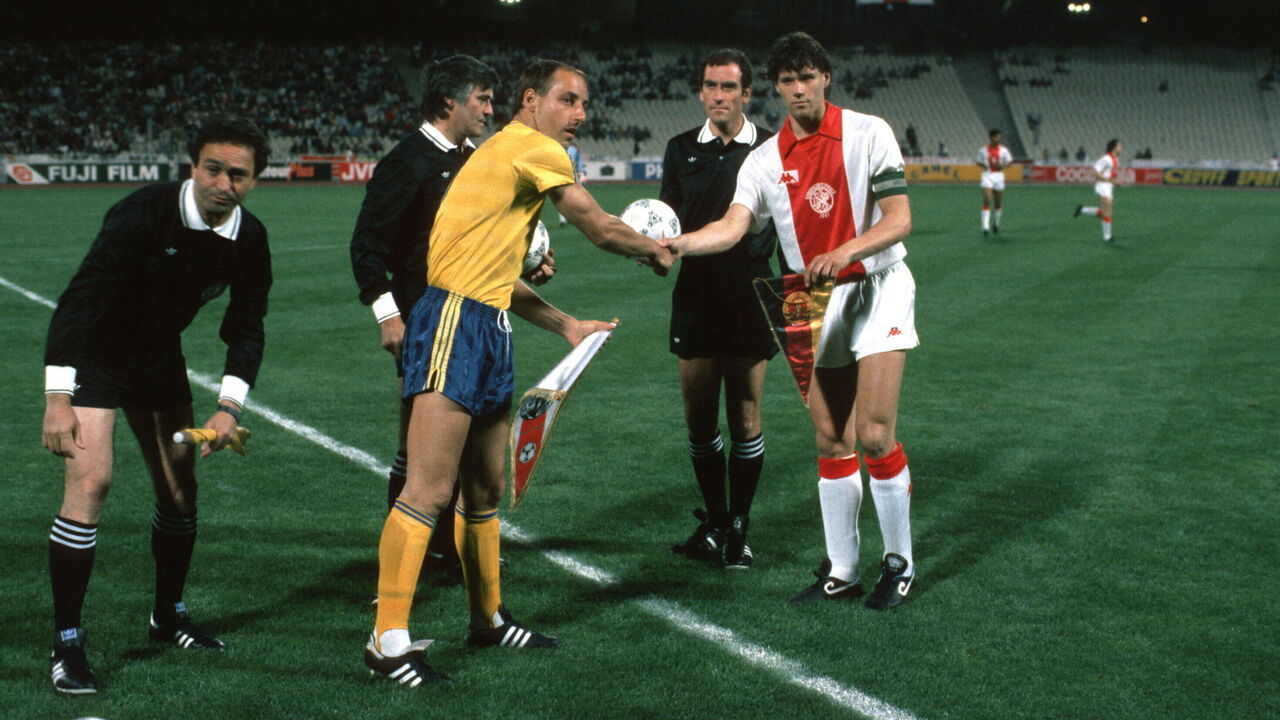
Rosler was born in 1968 and only knew life in the shuttered GDR. The country formed in 1949 and the Berlin Wall was built in 1961 to stop East Germans from fleeing west. The setup served him well.
"I got training sessions in the morning, then school, and afternoon training again. Every day, every week, every month," Rosler explained. He left home at age 11 to live at an elite sports school with other gifted athletes.
"I would have never come so far in my football if I didn't have that upbringing. And for that upbringing, I thanked the system," Rosler added. "The system had a lot of flaws, we all knew that, but in my time - I was very young, I was a child who started to be a young man - the system provided me with what I loved most and that was playing football."
Perhaps Rosler's diligence and his commitment to the system that made him "the best version" of himself made him appear more malleable to the Stasi. But he didn't commit to helping the secret police, despite the threats. He went home and sought his dad's advice. Rosler's father told his teenage son that talking to his manager might be the only chance to avoid Stasi control.
"That's exactly what I did - the best advice in my life - and all credit to the coach from Lokomotive Leipzig, Hans-Ulrich Thomale at the time, that he took everything away. I never heard from them again," Rosler said.
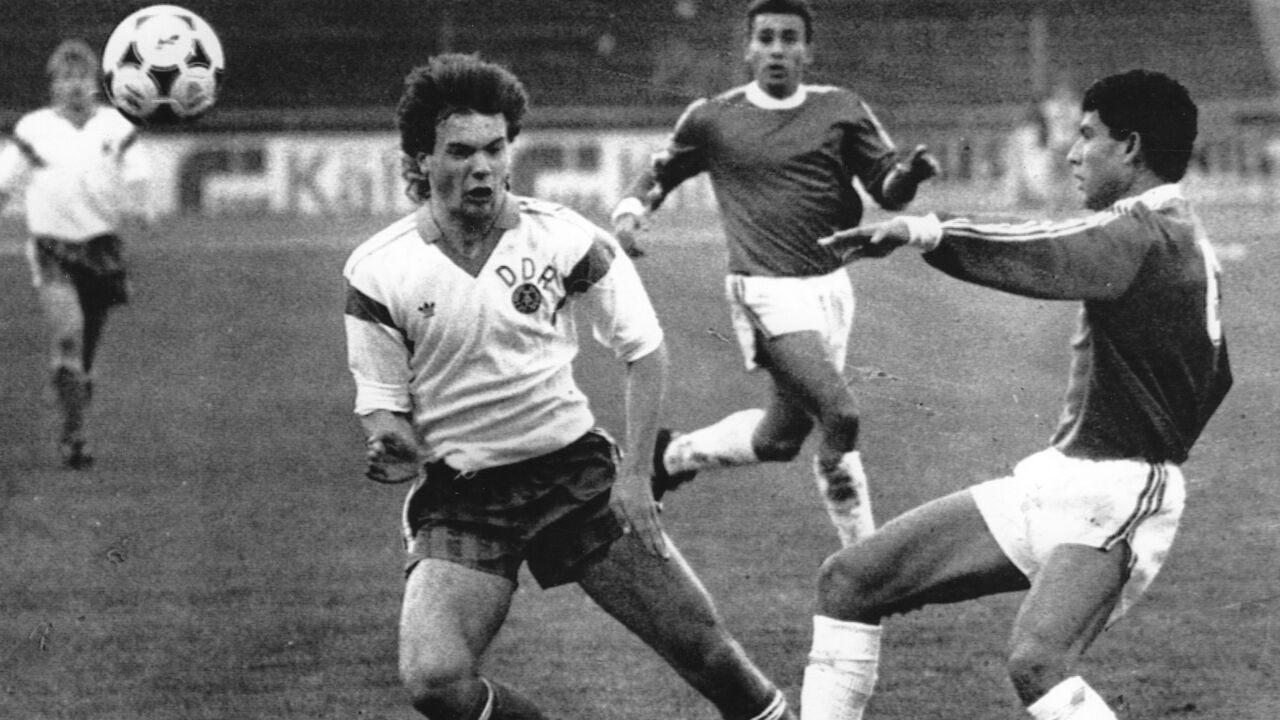
Rosler isn't entirely sure what Thomale did, but Oberliga clubs were linked with the Socialist Unity Party of Germany, often through political leaders on their boards. Lokomotive Leipzig was the club of East Germany's state railway.
The Stasi used coercion and violence to maintain communist power in the GDR for four decades. The spying network could do more than disrupt careers - it could ruin or end lives. Rosler feels lucky to this day for avoiding that overbearing, dangerous presence, but standing up against the political system took its toll.
"I didn't wish that to my biggest enemy, this psychological pressure that I was put under there for weeks," Rosler said.
A bus and 300 motorbikes
Like many young East Germans, Rosler admired the Bundesliga. Playing in it felt like an unobtainable dream for the promising striker until peaceful protests in the country and the government's weakening grip led the Berlin Wall to fall on Nov. 9, 1989.
The border opened.
"The moment the Wall fell was like a relief, was like excitement. Opportunities. Joy," Rosler remembered.
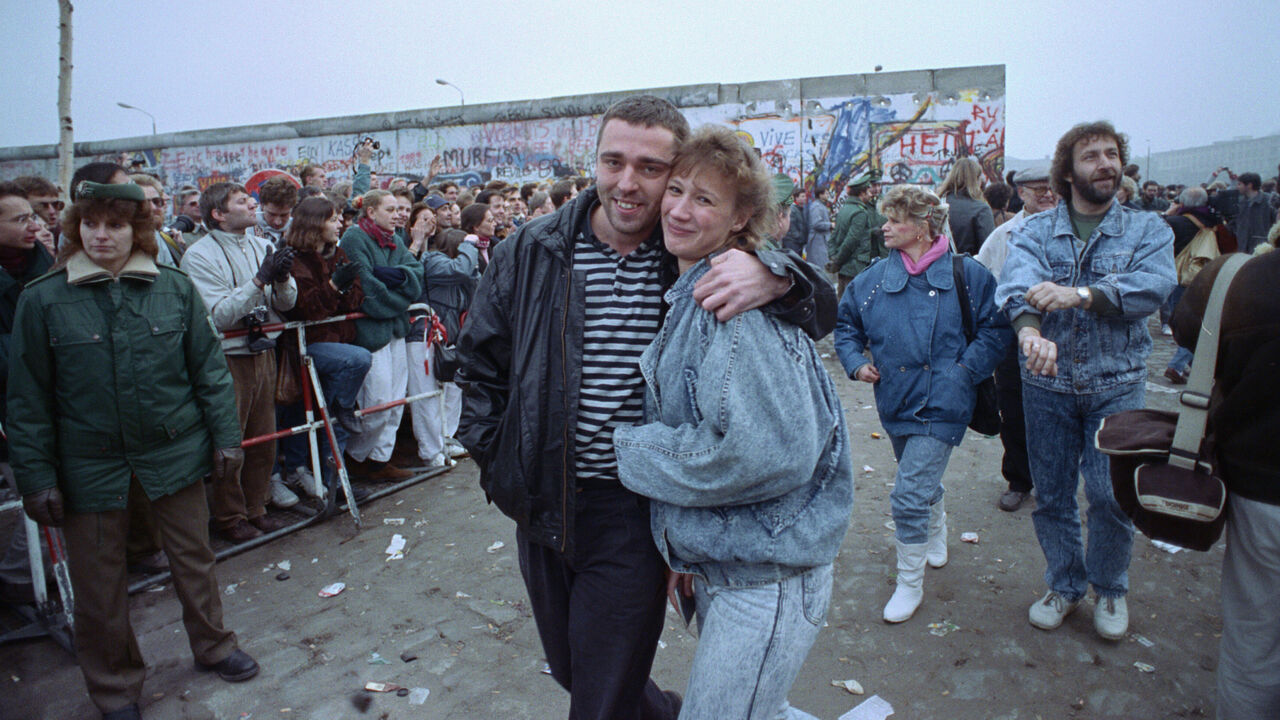
"I played with so many good players who were far better than me, but the unification came and some of them were 30 or 35 or 33. They didn't have enough time to make a fantastic career, even to be financially secure."
The younger generation was suddenly thrust into the transfer market and keen to take advantage.
The clamor for East German players was evident at an international camp days after the Wall fell. Aside from an unexpected victory over eventual champion West Germany at the 1974 World Cup, East Germany's men's team habitually disappointed its fans, usually with botched qualification bids. It followed suit in its last qualification match for the 1990 World Cup. East Germany only needed a draw against Austria to reach the tournament in Italy, but the players were distracted, frantically making phone calls trying to engineer a Bundesliga transfer.
Agents buzzed around the national team camp. An official from one West German club disguised as a photographer even managed to get onto the East Germany substitutes' bench during the 3-0 defeat in Vienna.
"We were effectively international players on an amateur status, you know? This is why we were very, very, very interesting for all those Bundesliga clubs," said Rosler, who's now head coach of Denmark's AGF. "They get good and very well-educated players, and basically don't need to pay anything. Or when they need to pay anything, that was just a compensation package."
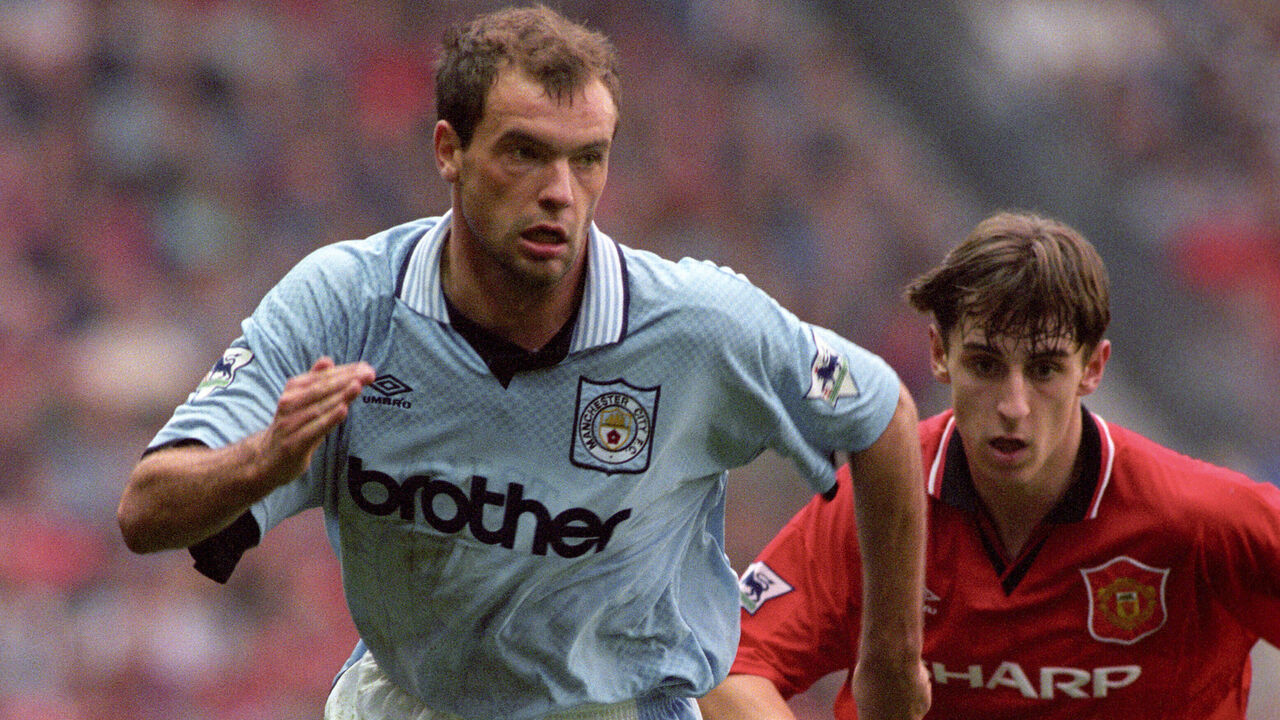
Rosler moved to Bavarian club Nurnberg in 1992. He later became a rare beacon of light during a bleak period in Manchester City's history before playing alongside Michael Ballack, another player reared in East Germany's regimented sports system, in the Champions League with Kaiserslautern. But some of Rosler's international teammates moved to West Germany earlier and brutally exposed how naive East German clubs were in the competitive, capitalist environment.
Bayer Leverkusen general manager Reiner Calmund quickly took advantage. He made Andreas Thom the first player to officially swap East for West when the forward left BFC Dynamo - sometimes referred to as Dynamo Berlin - for Leverkusen. Most of the transfer fee "disappeared into a black hole," historian Alan McDougall found while researching his book, "The People's Game." Many believe part of the payment for Thom included Leverkusen delivering 300 motorbikes to BFC's headquarters.
Stuttgart included a team bus as part of their transaction to acquire Matthias Sammer. But to Dynamo Dresden's surprise, the bus was reclaimed three years later because it was on a lease agreement. Sammer won three Bundesliga titles, captained Borussia Dortmund to Champions League glory, and won Euro 1996 with Germany during a distinguished career.
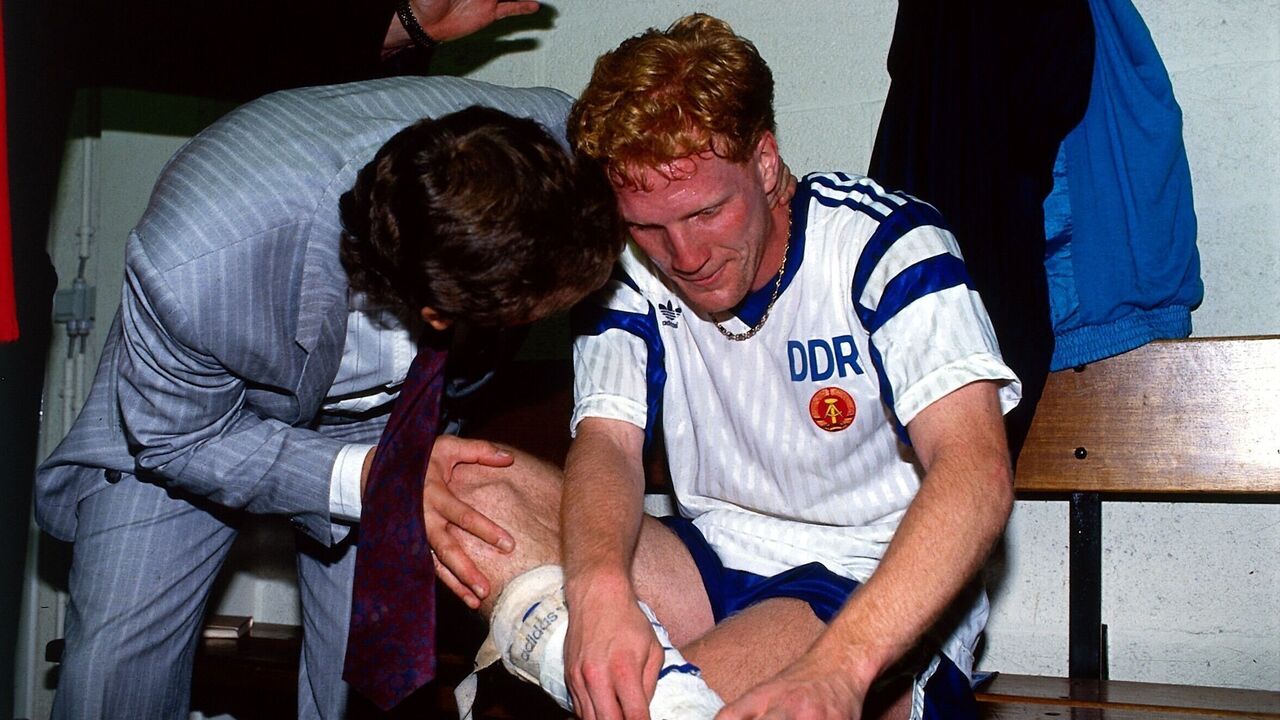
The way the West seemingly took advantage of the East was also a theme in much more important matters than soccer.
"It wasn't a unification so much as an annexation or takeover by the West in the East - whether that was in football or economics or politics," McDougall told me. "That was how it was perceived by many people in the East."
'Never fully recovered'
The Oberliga had problems well before the players' exodus.
Stasi leader Erich Mielke's influence at his beloved BFC Dynamo pushed the modest team to 10 consecutive titles between 1979 and 1988. The club was blessed with the pick of the best players the country had to offer, the finest facilities, and - widely believed - relationships with referees who helped engineer positive results for the team.
BFC's shady dominance, along with Europe-wide hooliganism issues in the 1980s, resulted in a significant drop in matchday attendance.
The final Oberliga season occurred during the official reunification of Germany in October 1990 and was an afterthought. Average attendance dropped to 4,807 during the 1990-91 campaign, by far the lowest figure in Oberliga history, according to McDougall.
It all contributed to a crisis that East German soccer "never fully recovered from," McDougall said.
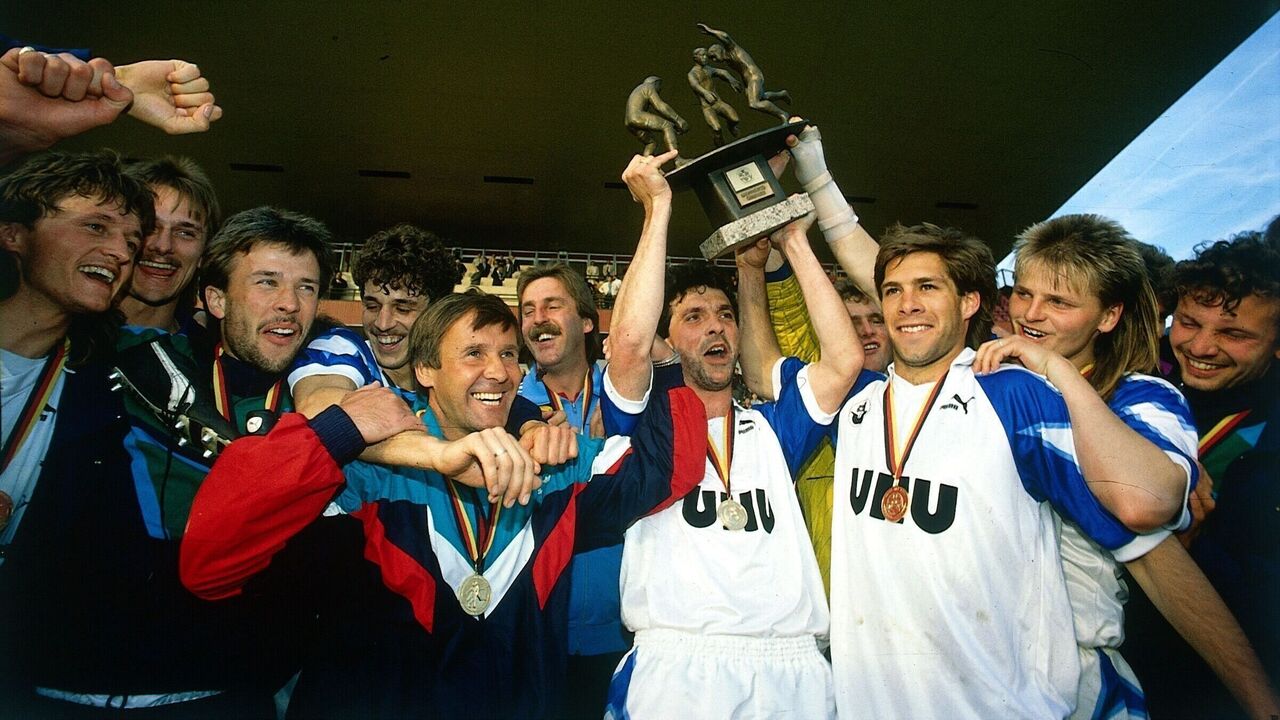
Once the Oberliga was done, the German Football Association (DFB) allowed only the top two East German teams into the first tier: Hansa Rostock - who couldn't have timed their maiden league title any better in 1991 - and Dynamo Dresden. The rest were placed in the lower rungs of German soccer. BFC Dynamo, who finished in the bottom half of the final Oberliga table after the funding that fueled their dominance evaporated with the death of the state and its secret police, were plunged into the amateur ranks.
The perennial East German champions opened the following campaign in front of a crowd of 76 people.
Ex-Oberliga teams in the Bundesliga
| Team | Seasons |
|---|---|
| Hansa Rostock | 12 |
| Union Berlin | 6 |
| Energie Cottbus | 6 |
| Dynamo Dresden | 4 |
| Lokomotive Leipzig | 1 |
The poor treatment of the East extends far beyond soccer and exists decades later. The national media uses a disproportionate amount of negative stereotypes while reporting on eastern Germany, a public broadcaster for three eastern states found in a recent analysis of millions of articles published since 1990.
"Negative attributions, right-wing terminology, and narratives of powerlessness and protests continue to dominate," the report said of stories published this decade.
Eight-time Oberliga champions Dynamo Dresden have turned negative stereotypes about their region into a point of pride in an effort to fortify an image of toughness. In a third-tier fixture earlier this year, their fans unveiled a sign that dubbed the club "The Guardians of Dark Germany."
The opponent that day: Rot-Weiss Essen, a club from the western state of North Rhine-Westphalia.
"Dunkeldeutschland" is a slur Germans in the west used to describe eastern Germany due to its poorly lit streets - a stark contrast to the apparent bright-light glamor of the West - as the bleakness of socialism supposedly lingered after reunification.
SG Dynamo Dresden - Rot-Weiss #UltrasDynamo #KBlock #ultras #SGD #Dresden #Dynamo #Choreo 3 Liga (24.02.24) pic.twitter.com/WlLrr6rP0x
— 1899 Mode Ultrà (@ultras1899_) February 25, 2024
Today, however, the rise of far-right German political party AfD (Alternative for Germany) appears to be linked to more extreme views reemerging in the stands. The party is polling second nationally, opposes immigration, and its leader has been fined for using Nazi slogans.
Supporters of second-division FC Magdeburg - the only old East German club to win a European title after shocking AC Milan in the UEFA Cup Winners' Cup in 1974 - are less associated with hard-right views than others in the region. Even so, some fans unfurled a banner at a September match that read, "Protect the homeland from foreign flags - move forward and have no mercy."
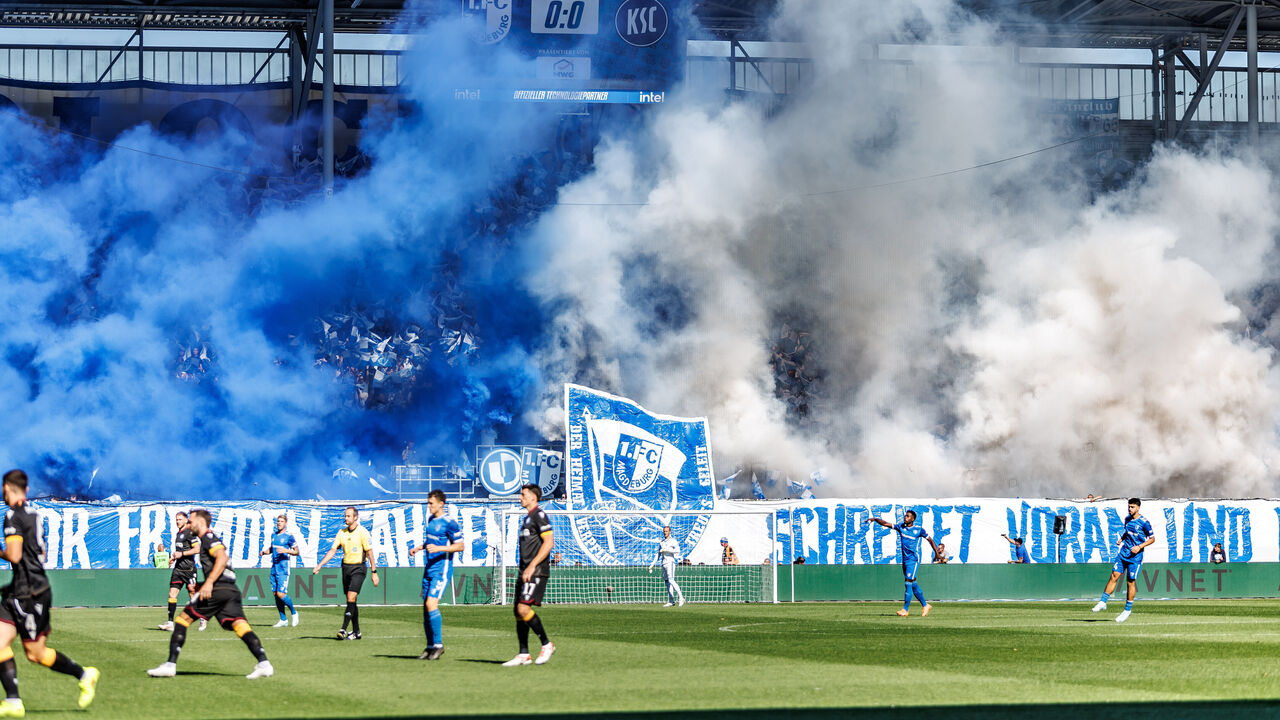
The extremist sentiment is perhaps a lashing out after feelings of neglect or disrespect. The things that made East Germans proud were discarded in reunification. There was no compromise. Capitalism swarmed.
The town of Eisenhuttenstadt is a good case study. Situated on the border with Poland, it didn't exist until the 1950s but was quickly built as a socialist haven. Its nucleus was a vast steelworks, employing around 12,000 people, with affordable housing, good hospitals, and fine education available to the population of 52,000.
Today, the population of the GDR's once-proud model town has fallen to around half that number. The workforce at the steel plant - now privatized - was at about only 2,000 when author Michael Wagg visited the town in 2019 for a match. Eisenhuttenstadt's team, which faced Galatasaray in the UEFA Cup Winners' Cup in 1991, now plays in the sixth tier.
"There is spirit here, but it's hard to find," Wagg wrote in his 2020 book, "The Turning Season."
"The city is of course still alive, but the sense I get on these streets now is that it has been sinking for these 30 years into a slow, difficult emptiness. Like a ghost as big as a city, it is translucent."
HEADLINES
- Leverkusen jinxed by injuries as Terrier sidelined with broken arm
- Bundesliga roundup: Frankfurt beat Werder Bremen to leapfrog Leipzig
- Leverkusen's forward line thinning out with Hofmann sidelined until January
- Kane hits back at critics after reaching 50 Bundesliga goals in record time
- Kane fires Bayern 8 points clear with hat-trick vs. Augsburg